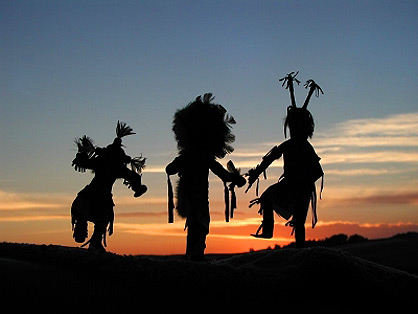Recently I’ve become captivated by a rather spell-binding film called Home. Home is a full-length documentary filmed in over 50 countries from a bird’s-eye view, if that bird happened to look like this guy. In many ways it is a poetic visual homage to the ancient rhythms of human life that rattle through our bones daily, so often driven into oblivion by this distraction or that.
The film takes viewers from the beginnings of life on Earth, to its possible endings, all the while angrily baring its teeth at the vast expanses of precious life laid to waste by consumer culture and the society that’s been built around its altar.
Home has received millions of views around the world by now and is shown for free in this medium or that. Profits go to charity, and so forth. In a way, the film has ‘gone viral’, which is every marketeer's wet meme dream—as an aside, it seems this relatively new term means that the collective wills of millions of computer users erode like dust in the wind; some greater cultural force takes over, singing us the irresistible lyrics of Jizz in My Pants or the entertaining, yet informative, tune of Story of Stuff (not sure if this is considered ‘viral’ yet, but it should be).
But what struck me all the more about Home is that of its sponsorship. The film starts with the acknowledgment of the support by a group called PPR. The opening montage sees the logos of countless fashion companies exploding into a cloud of ethereal pixie dust, which eventually coagulates into the title of the movie. We’re reminded that this movie is thanks to the support of the 88,000 employees of PPR group.
But who the fcuk is PPR? That’s what kept tickling the back of my throat. The irony here was never lost on me-- the scathing, if sometimes vague and formulaic, critique of 21st century consumer capitalism sponsored by a hodgepodge of transnational fashion corporations. But it wasn’t until I typed in a few buttons on this here ol’ computamatizin’ tappin’ machine that I found how deep that irony actually runs.
PPR is indeed a mega-huge corporate conglomerate headquartered in Paris, with a majority stake in subsidiaries like Puma and Gucci, which themselves own brands like Yves St. Laurent, Alexander McQueen, Stella McCartney, along with other lines of African cars and pharmaceuticals. But what’s interesting is how slimy PPR's reputation is among those that have dedicated much more of their life's energy to this issue than I (see here too).
It casts new light on the 10 million euros PPR shelled out to fund this 12 million euro documentary eco-endeavour when you read that NGO’s like World Wildlife Fund and Clean Clothes Campaign have consistently given PPR a failing grade on a number of environmental and social responsibility report cards. Among the accusations include:
-Selling exotic luxury fashion items made of red fox and badger fur, snake and crocodile skin, among other must-haves like Alexander McQueen’s well-advertised python egg handbag.
-Selling factory-farmed mink coats--which makes the section in Home depicting the ‘concentration-camp styled cattle farms’ all the more poignant.
-Breaking international labour laws, paying illegally low wages and busting unions
-Employing 16 year old girls to slave for 17 hours a day while forcing them to pay back their earnings for crowded company-owned housing
-Fining workers for refusing to work overtime, not providing clean drinking water at factory facilities and subjecting pregnant women to harsh working conditions
There’s a full gamut of accusations on the exploits of PPR. But why care so much? These sorts of financial relationships are inescapable in much of big productions like Home. It’s a valid question that doesn’t have a clear answer to me, except that I find such an ironic public partnership blasphemous to the suffering of all those beings who have been muffled and maimed by this nameless corporate enterprise. That and it detracts from the integrity of the film which is quite mesmerizing on its own. It’s crucial to point to these inconsistencies of word and deed as they leave companies like PPR vulnerable to public critique and hence opportunities for meaningful change in their international business operations.
Michael Conroy, author of the book Branded!, notes that companies that publicly market their brands to consumers are sensitive to market campaigns by advocacy groups who petition them to adopt more responsible ways of doing business. He notes that companies that invest so heavily in the value of their brand are extraordinarily exposed to negative publicity and civil discourse which can leave a huge impact things as seemingly ethereal as their stock prices. Many big brands have well over 50% of their stock price tied up in the perceived value of their brand.
Conroy points to Nike in the mid-1990's when the company came under intense public scrutiny by labour organizations, human rights groups and investigative journalists for their use of dollar-a-day-12 hour day-forced overtime- child labour in their supply chains (*also of note were the women workers in Vietnam who were exposed to environmental carcinogens 177 times higher than legal standards). In just over a year the company lost 57% of its share value, and with it tens of billions in shareholder money. While much progress remains to be seen in the global garment industry, Conroy suggests these events led to the adoption of more stringent labour standards and better factory monitoring for Nike.
But all this noise about brands and hypocritical green/cleanwashing is not meant to detract from the cinematic beauty of Home itself. It's clearly valuable to oscillate between perspectives: from becoming immersed in the messages of Home, to adopting the more critical eye towards its sponsorhsip, company practices and our own choices as civil actors and consumers. Like many other 'viral' carriers, I've been afflicted by the power this strange beast and passed its link on to my friends, family, co-workers and now you. I hope you can still get into it.


.jpg)







